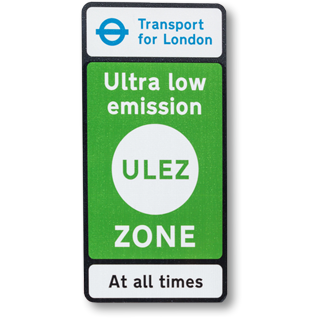The UK is one of the leading countries in the world when it comes to the introduction of ultra-low emission diesel-electric hybrid and zero emission electric buses (EV). Numerous cities across the UK are closely following Transport for London London’s example, transforming their fleets with the mass introduction of diesel-electric hybrid & electric buses.

Hybrid & EV Buses
Product Search
Hybrid & Electric Buses
Although visually similar to a conventional diesel bus on the outside, hybrid buses and EV are fundamentally different inside. Hybrid buses and EV are equipped with a range of new technologies, with thermal management, air supply and power steering representing just three of the areas which have had to be redesigned to suit hybrid and electric vehicles.
Leading Hybrid & EV Bus Manufacturers
Bus manufacturers leading the field in hybrid and electric bus technology, include ADL, BYD, Caetano and Optare, as well as Volvo, Yutong and Wrightbus.
Our team is passionate about ensuring Imperial’s customers have access to the widest possible range of in-stock products and our portfolio is carefully selected to ensure that we are focused on meeting our customers’ specific needs.
All products are carefully packaged and delivered on time, so our customers have complete peace of mind. We deliver on time and our team of drivers will regularly collect old core items ensuring your depots are clear of old units.
Please explore our specialist range of PSV parts and components for hybrid and electric applications in more detail. If there is something you would like us to quote on that is not listed, please contact us.
Air Supply
Compared to a conventional diesel bus, hybrid & EV vehicles are fundamentally different when it comes to producing the compressed air needed to provide the main energy source for the air braking, pneumatic suspension and door opening systems. While diesel-powered buses use engine-driven air compressors, hybrids and EV typically feature standalone electrically-driven screw or vane compressors.
Known as ‘e compressors’, these sophisticated systems are produced by OEMs including Knorr-Bremse, Gardner Denver Hydrovane and Mattei. Designed supply a constant and stable compressed air supply, e-compressor assemblies comprise of a compressor, electric drive motor and invertor.
Unlike diesel-driven compressors that are lubricated and cooled by the same circuit’s as the engine, e-compressors feature a standalone lubrication system. As a result, these systems require regular oil and filter changes, in line with the compressor or vehicle manufacturer’s recommendations, to ensure the intended service life of the system.

Thermal Management
Whereas conventional diesel-powered buses employ the more commonly known engine-driven water pumps that are mounted directly to the engine and driven via the timing gears or belt, and rely on the engine speed to govern the flow rate of the water pump, hybrid and electric buses use new technology in the form of electric water pumps to provide thermal management.
High performance electric water pumps from OEMs such as AVID use an intelligent Controller Area Network (CAN bus) enabled Electronic Control Unit (ECU) to manage the pump’s speed, unlike conventional water pumps that are engine speed dependent. This provides the unique ability to precisely control the power consumption and performance of the pump, making electric water pumps considerably more efficient than engine-mounted systems.
Electric water pumps are used to boost the circulation of the existing cooling systems, helping to optimise diesel engine heat-up time on hybrid buses, as well as keeping the engine running at a more consistent temperature. They are also used in separate thermal management systems for the battery assemblies on hybrid and electric buses to maintain optimum battery cell temperature.

Electric water pumps typically use robust and efficient brushless DC motors to ensure performance and reliability. Both 12v and 24v DC electric water pumps are available to ensure compatibility with the electrical architecture of specific vehicles. In addition, some electric water pumps have the capability to provide a flow rate in excess of 110 litres per minute, as well as full speed control via a CAN bus connection which enables full diagnostic information via the vehicle manufacturer’s software.
Power Steering
Unlike conventional diesel buses, which use engine-driven pumps to provide the hydraulic pressure for the power steering system, hybrid & EV buses are feature a standalone electrohydraulic power steering pump (EHPS), which use electric motors to power the hydraulic system.
The electrohydraulic power steering pump provides the demand-oriented amount of oil and pressure that is needed to operate the hydraulic steering system at any given time. EHPS systems from OEMs such as Bosch typically consists of two electric motors, each equipped with power electronics equipment, a vane pump and vehicle-specific mounting bracket.
Communication between the vehicle and the EHPS takes place via the vehicle-specific communication network CAN bus, which can also be used to run a diagnosis of the electrohydraulic power steering pump.

Imperial Engineering can support with any customers hybrid and electric bus needs from service kits to complete replacement assemblies for air supply, thermal management and power steering systems.